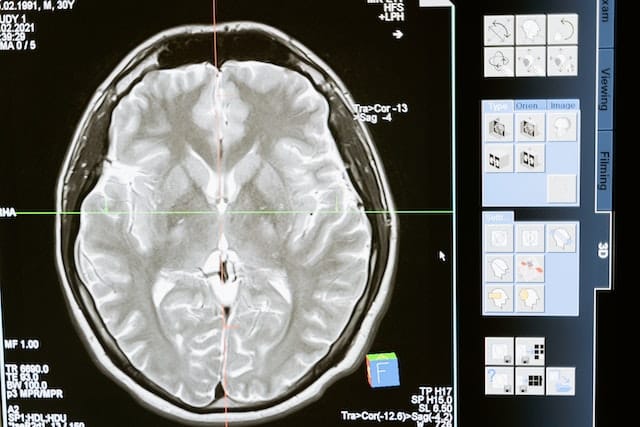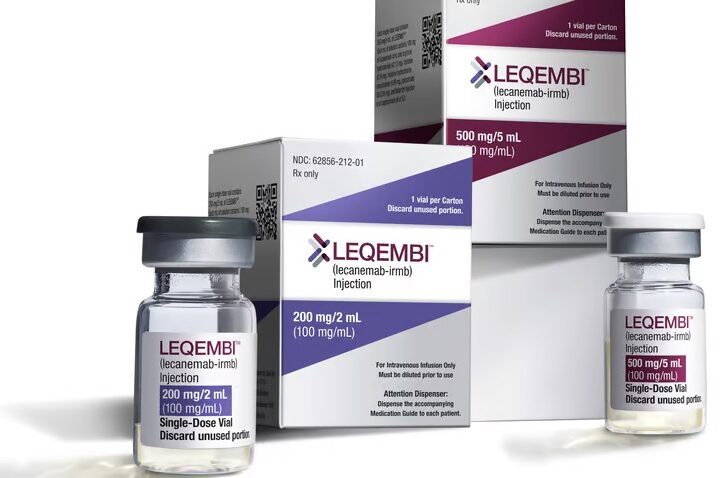Drugmaker Eli Lilly says experimental Alzheimer's drug remternetug is part of the next generation of anti-amyloids.
The approval of the controversial anti-amyloid drug Aduhelm last year marked a major milestone for Alzheimer’s research — it became the first new drug approved for the disease in almost 20 years. Now, researchers and patients are anxiously awaiting Phase 3 results from the next three anti-amyloid drugs — lecanemab (which recently released a peek at encouraging early results), donanemab, and gantenerumab.
The manufacturers of donanemab, Eli Lilly, are also at the start of Phase 3 trials for yet another drug called remternetug, which executives have lauded as the “next generation” of anti-amyloids.
Remternetug is an antibody protein designed to target toxic amyloid plaques, linked to the onset of Alzheimer’s disease. The drug is designed to attach to a specific region of the toxic amyloid protein, attracting other immune cells that can clear the plaques, hopefully addressing the root-cause of Alzheimer’s symptoms.
So, why are these amyloid plaques so key? Well, many researchers believe that clearing them from the brain could prevent further cognitive decline — and even halt the progression of the disease.
“We’re encouraged by the deep and rapid amyloid clearance we’ve seen with remternetug from our Phase 1b study, and look forward to sharing results of this study at a future medical meeting.” said Dawn Brooks, PhD, head of global development for donanemab and remternetug at Eli Lilly.
How remternetug compares to other Alzheimer’s drugs
Remternetug works similarly to other anti-amyloid drugs like donanemab, which target beta-amyloid plaques for removal. “While the mechanism of action is similar between the two molecules, we are exploring alternative dosing regimens, including subcutaneous dosing,” said Brooks.
Biogen and Eisai’s anti-amyloid drugs were also developed with a similar idea in mind. While Aduhelm was approved, there are still questions surrounding its efficacy.
(In February 2024, Biogen took Aduhelm off the market indefinitely.)
Nonetheless, some patients who took Aduhelm during the clinical trials reported that the periodic infusions of the drug seemed to provide relief from their symptoms — while brain scans showed the drug cleared the amyloid plaques from their brains.
Biogen and Eisai’s recent announcement also revealed that lecanemab appeared to clear plaques and slow cognitive decline in its Phase 3 trial.
Testing a new method for administering the drug
One of the unique aspects of the trial is how the drug will be delivered. Trial participants will be randomized across two groups, where one will receive intravenous infusions, while the other group will receive injections just under the skin. This will give researchers new insight into whether one delivery method or another is more effective.
If approved, Brooks said that it could also provide another option for patients and their families when choosing a treatment.
The study will take two years and 22 visits to the clinic, during which trial participants will receive the drug or placebo to test whether the drug can promote the clearance of amyloid plaques in the brain, while also monitoring the incidence of brain inflammation and bleeding — called amyloid-related imaging abnormalities (ARIA) — which appeared in 40 percent of participants in the Aduhelm trial. While ARIA is most often asymptomatic, the long-term consequences are unknown.
“Whether this alternative route of administration will reduce the incidence of ARIA is unknown at this point in time,” Brooks said, adding that the ultimate goal is developing an amyloid-lower drug with “flexible dosing regimens, potentially including subcutaneous administration, to address the different needs of the Alzheimer’s disease population.”
UPDATED: 3 March 2024, 8:46 P.M. ET. In February 2024, Biogen took Aduhelm off the market, citing financial concerns. Although the drug did receive accelerated, conditional FDA approval for the treatment of early Alzheimer’s disease in 2021, it is no longer available to new patients. The company announced it would sunset trials in May 2024 and cease supplying the drug to current patients in November 2024.





What happened to your E-Mail to me. I hope all is well. I learned a lot about Alzheimer
decease from reading your E-Mails.
My wife has it. She is 84 years old.